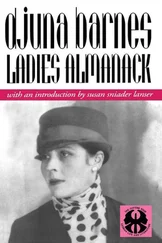‘Get out!’ he said softly, laying his hand on the girl’s shoulder. ‘Get out, get out!’ It was obvious he meant it; he bowed slightly.
As they reached the street the ‘Duchess’ caught a swirling hem of lace about her chilling ankles. ‘Well, my poor devil?’ she said, turning to Felix.
‘Well!’ said Felix. ‘What was that about, and why?’
The doctor hailed a cab with the waving end of a bulldog cane. ‘That can be repaired at any bar,’ he said.
‘The name of that’, said the Duchess, pulling on her gloves, ‘is a brief audience with the great, brief, but an audience!’
As they went up the darkened street Felix felt himself turning scarlet. ‘Is he really a Count?’ he asked.
‘Herr Gott!’ said the Duchess. Am I what I say? Are you? Is the doctor?’ She put her hand on his knee. ‘Yes or no?’
The doctor was lighting a cigarette and in its flare the Baron saw that he was grinning. ‘He put us out for one of those hopes that is about to be defeated.’ He waved his gloves from the window to other guests who were standing along the curb, hailing vehicles.
‘What do you mean?’ the Baron said in a whisper.
‘Count Onatorio Altamonte—may the name eventually roll over the Ponte Vecchio and into the Arno—suspected that he had come upon his last erection.’
The doctor began to sing, ‘Nur eine Nacht.’
Frau Mann, with her face pressed against the cab window, said, ‘It’s snowing.’ At her words Felix turned his coat collar up.
‘Where are we going?’ he asked Frau Mann. She was quite gay again.
‘Let us go to Heinrich’s, I always do when it’s snowing. He mixes the drinks stronger then, and he’s a good customer, he always takes in the show.’
‘Very well,’ said the doctor, preparing to rap on the window. ‘Where is thy Heinrich?’
‘Go down Unter den Linden ,’ Frau Mann said. ‘I’ll tell you when.’
Felix said, ‘If you don’t mind, I’ll get down here.’ He got down, walking against the snow.
Seated in the warmth of the favoured café, the doctor, unwinding his scarf said: ‘There’s something missing and whole about the Baron Felix—damned from the waist up, which reminds me of Mademoiselle Basquette who was damned from the waist down, a girl without legs, built like a medieval abuse. She used to wheel herself through the Pyrenees on a board. What there was of her was beautiful in a cheap traditional sort of way, the face that one sees on people who come to a racial, not a personal, amazement. I wanted to give her a present for what of her was missing, and she said, “Pearls—they go so well with everything!” Imagine, and the other half of her still in God’s bag of tricks! Don’t tell me that what was missing had not taught her the value of what was present. Well, in any case,’ the doctor went on rolling down his gloves, ‘a sailor saw her one day and fell in love with her. She was going uphill and the sun was shining all over her back, it made a saddle across her bent neck and flickered along the curls of her head, gorgeous and bereft as the figure head of a Norse vessel that the ship has abandoned. So he snatched her up, board and all, and took her away and had his will; when he got good and tired of her, just for gallantry, he put her down on her board about five miles out of town, so she had to roll herself back again, weeping something fearful to see, because one is accustomed to see tears falling down to the feet. Ah truly, a pineboard may come up to the chin of a woman and still she will find reason to weep. I tell you Madame, if one gave birth to a heart on a plate, it would say “Love” and twitch like the lopped leg of a frog.’
‘Wunderbar!’ exclaimed Frau Mann. ‘ Wunderbar, my God!’
‘I’m not through,’ said the doctor, laying his gloves across his knees, ‘someday I am going to see the Baron again, and when I do I shall tell him about the mad Wittelsbach. He’ll look as distressed as an owl tied up in a muffler.’
‘Ah,’ exclaimed Frau Mann, ‘he will enjoy it. He is so fond of titles.’
‘Listen,’ the doctor said, ordering a round, ‘I don’t want to talk of the Wittelsbach. Oh God, when I think back to my past, everyone in my family a beauty, my mother, with hair on her head as red as a fire kicked over in spring (and that was early in the eighties when a girl was the toast of the town, and going the limit meant lobster à la Newburg). She had a hat on her as big as the top of a table, and everything on it but running water; her bosom clinched into a corset of buckram, and my father sitting up beside her (snapped while they were riding on a roller-coaster). He had on one of those silly little yellow jackets and a tan bowler just up over his ears, and he must have been crazy, for he was sort of crosseyed—maybe it was the wind in his face or thoughts of my mother where he couldn’t do anything about it.’ Frau Mann took up her glass, looking at it with one eye closed—‘I’ve an album of my own,’ she said in a warm voice, ‘and everyone in it looks like a soldier—even though they are dead.’
The doctor grinned, biting his teeth. Frau Mann tried to light a cigarette, the match wavered from side to side in her unsteady hand.
Frau Mann was slightly tipsy, and the insistent hum of the doctor’s words was making her sleepy.
Seeing that Frau Mann dozed, the doctor got up lightly and tip-toed noiselessly to the entrance. He said to the waiter in bad German: ‘The lady will pay,’ opened the door, and went quietly into the night.
CHAPTER TWO
La Somnambule
Close to the church of St. Sulpice, around the corner in the rue Servandoni, lived the doctor. His small slouching figure was a feature of the Place. To the proprietor of the Café de la Mairie du VIe he was almost a son. This relatively small square, through which tram lines ran in several directions, bounded on the one side by the church and on the other by the court, was the doctor’s ‘city’. What he could not find here to answer to his needs, could be found in the narrow streets that ran into it. Here he had been seen ordering details for funerals in the parlour with its black broadcloth curtains and mounted pictures of hearses; buying holy pictures and petits Jésus in the boutique displaying vestments and flowering candles. He had shouted down at least one judge in the Mairie du Luxembourg after a dozen cigars had failed to bring about his ends.
He walked, pathetic and alone, among the pasteboard booths of the Foire St. Germain when for a time its imitation castles squatted in the square. He was seen coming at a smart pace down the left side of the church to go into Mass; bathing in the holy water stoup as if he were its single and beholden bird, pushing aside weary French maids and local tradespeople with the impatience of a soul in physical stress.
Sometimes, late at night, before turning into the Café de la Mairie de VIe , he would be observed staring up at the huge towers of the church which rose into the sky, unlovely but reassuring, running a thick warm finger around his throat, where, in spite of its custom, his hair surprised him, lifting along his back and creeping up over his collar. Standing small and insubordinate, he would watch the basins of the fountain loosing their skirts of water in a ragged and flowing hem, sometimes crying to a man’s departing shadow: ‘Aren’t you the beauty!’
To the Café de la Mairie du VIe he brought Felix, who turned up in Paris some weeks after the encounter in Berlin. Felix thought to himself that undoubtedly the doctor was a great liar, but a valuable liar. His fabrications seemed to be the framework of a forgotten but imposing plan; some condition of life of which he was the sole surviving retainer. His manner was that of a servant of a defunct noble family, whose movements recall, though in a degraded form, those of a late master. Even the doctor’s favourite gesture—plucking hairs out of his nostrils—seemed the ‘vulgarization’ of what was once a thoughtful plucking of the beard.
Читать дальше












